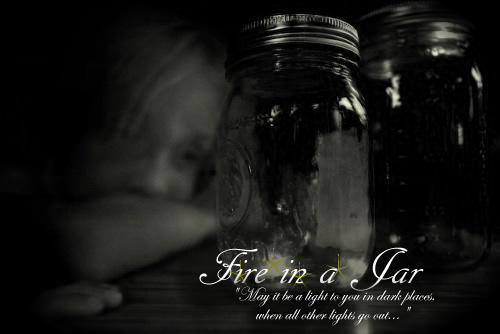“I have one desire now – to live a life of reckless abandon for the Lord, putting all my energy and strength into it … If there’s nothing to this business of eternal life we might as well lose everything in one crack and throw our present life away with our life hereafter. But if there is something to it, then everything else the Lord says must hold true likewise.” {Ed McCully in a letter to Jim Elliot}
Calling. It’s like the cool Christian catchphrase. We don’t ask high school students what they want to do with their lives; we ask them what they feel they’re called to, and we get warm and fuzzy spiritual answers like: “I am called to reach inner city kids with the Father love of God;” “I am called to chip away at the foundations of humanism in our nation’s Ivy League universities;” “I am called to…” But what if we’ve missed something important? What if it’s not about being called to somewhere, but simply that we are called?
That may seem like a petty distinction. What difference does it make whether I am called or called to? Personally, I think it makes all the difference in the world. If I am called to something, then it is when I do that one thing that I am worshiping God with my life. But if I am called, then my whole entire life from opening my eyes in the morning to closing them at night can be an answer and a praise to the One who gives me breath.
Oddly enough, that’s not what I meant to write about, but it’s a decent segue. During my time at dts this past year, we had the opportunity to participate in several 12-hour long burns at the Life Center (it’s an extended community worship time, not a political hate meeting or a book censoring party). Lucas and Sam had taken one of the night watch sets, and I happened to come in halfway through. They weren’t really singing about the magnificence of God or giving Him praise for something He had done. It was more like a love song. I wish I could give you the poignancy of that moment, but words are insufficient. And in the midst of it, Lucas sang, “Let it be said when I am 82, ‘he wasted his life on Jesus…’ because it’s not a waste at all.”
It almost sounds silly when I type it out. And yet, there is something too powerful in this word “waste” to ignore the lovesickness of the heart behind it. What do we do for those whom we love? We lavish what we have on them. The classic prayer room example is Mary breaking her alabaster jar to bathe Jesus’s feet with costly perfume. So much is given because there is no other way to express the depths of love that would give more than “much,” would give “all.”
The Ed McCully quote that I began with is taken from Through Gates of Splendor by Elisabeth Elliot. A few pages later, she says, “On December 10, 1952, with eight-month old Stevie, Ed and Marilou sailed for Ecuador, the country where God had indicated He wanted them to spend their lives.” In my copy, I underlined the word spend. Each breath that we take is a withdrawal from our life’s bank account. We don’t have a whole lot, and the temptation is to use it all for personal pleasures. “I’m tired, so I will use this time to sleep.” “I have to finish writing a paper, so I don’t have time to help you edit yours.”
The heart of the lover, the wastrel, does not hoard those breaths and use them for selfish ends. It sees all that it has as resources for the delight and joy of the beloved. When Elisabeth Elliot says that it was in Ecuador that “He wanted them to spend their lives,” she quite literally means in Ed’s case that he was to spend all of the life that he possessed for the souls of the Aucas. True, Marilou and Stevie lived on, but they also gave something precious and powerful. And yet, even as they may have felt deep grief, theirs was the consolation of 1 Thessalonians 4, the solace of hope, because Ed “wasted” his life on the One whom he loved.
“Because the foolishness of God is wiser than men, and the weakness of God is stronger than men… God has chosen the foolish things of the world to shame the wise, and God has chosen the week things of the world to shame the things which are strong.” (1 Corinthians 1:25,27)
Better to be foolish in love than wise in selfishness. Better to be prodigal and profligate with the hours that I have, giving them all in the service of the much-mocked “lost cause,” than to while them away on what does not endure. I think I should like that to be written on my tombstone: “The Prodigal Daughter.” She who wasted everything she had and gained Someone far better.
